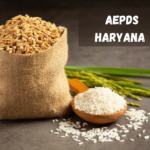Peanuts are a staple in many diets worldwide, often confused with true nuts. But are peanuts peas or nuts? This intriguing question invites us to explore the botanical classifications, culinary uses, and nutritional profiles of peanuts and their relatives. Let’s delve into the fascinating world of peanuts, uncovering their identity and clarifying common misconceptions.
Introduction: Peanuts in the Spotlight
Peanuts are often labeled as nuts and are widely consumed in various forms, from snacks to cooking ingredients. However, some people wonder, are peanuts peas or nuts? This question is not just a matter of semantics; it has implications for our understanding of botany, nutrition, and culinary practices.
In this article, we will explore the classification of peanuts, their uses in cuisine, their health benefits, and debunk some common myths surrounding them.
Botanical Classification
What Are True Nuts?
To determine whether peanuts are nuts, we first need to understand what constitutes a true nut. In botanical terms, a nut is a hard-shelled fruit that does not split open to release its seeds. Examples of true nuts include:
| True Nuts | Characteristics |
|---|---|
| Acorns | Hard shell, single seed |
| Chestnuts | Hard outer shell, edible inner seed |
| Hazelnuts | Round shape, smooth shell |
True nuts are typically produced by trees and belong to the family Fagaceae.
The Legume Family
Peanuts, scientifically known as Arachis hypogaea, belong to the legume family (Fabaceae). Unlike true nuts, legumes are characterized by their ability to produce pods that contain seeds. Peanuts grow underground, developing in a unique way:
- Flowering: The peanut plant flowers above ground.
- Pegging: The flower stalk elongates and bends downward, pushing the ovary into the soil.
- Pod Formation: The peanut pods develop underground, maturing into the edible seeds we know.
This growth process highlights a key difference when considering the question, ‘are peanuts peas or nuts?’ So, while peanuts may share the name “nut,” they are biologically classified as legumes, making them more closely related to peas than to actual nuts.
Culinary Perspective
Peanuts in Cooking
Peanuts are incredibly versatile in the culinary world. They are used in various cuisines globally, from peanut butter in American breakfasts to satay sauce in Southeast Asian dishes. Here are some common uses:
- Snacks: Roasted or salted peanuts are popular snacks.
- Condiments: Peanut butter is a staple in many households.
- Cooking Ingredients: Ground peanuts are often used in sauces and dressings.
Comparing Peanuts to Other Nuts
When we think about nuts, we often compare peanuts to other popular varieties like almonds, walnuts, and cashews. Here’s a quick comparison:
| Aspect | Peanuts | Almonds | Walnuts | Cashews |
|---|---|---|---|---|
| Botanical Family | Legume (Fabaceae) | Tree nut (Rosaceae) | Tree nut (Juglandaceae) | Tree nut (Anacardiaceae) |
| Growth Habit | Underground pods | Above-ground tree fruits | Above-ground tree fruits | Above-ground tree fruits |
| Nutritional Profile | High in protein and fat | High in vitamin E | Rich in omega-3 fatty acids | High in copper and magnesium |
| Culinary Uses | Snacks, spreads, sauces | Snacks, baking, milk | Salads, baking, oils | Snacks, cooking, desserts |
While they are often grouped together in culinary contexts, it’s important to remember that peanuts are distinct from true nuts botanically.
Nutritional Benefits of Peanuts
Peanuts are not just delicious; they are also packed with nutritional benefits. Here’s a breakdown of their key nutrients:
- Protein: Peanuts are an excellent source of plant-based protein, containing about 25-30 grams per 100 grams.
- Healthy Fats: They are rich in monounsaturated and polyunsaturated fats, which are heart-healthy.
- Vitamins and Minerals: Peanuts provide important vitamins such as vitamin E, B vitamins, and minerals like magnesium and phosphorus.
Health Benefits
- Heart Health: The healthy fats in peanuts can help lower bad cholesterol levels.
- Weight Management: Despite being calorie-dense, peanuts can promote satiety and help with weight management.
- Antioxidant Properties: Peanuts contain antioxidants like resveratrol, which may reduce inflammation.
Common Misconceptions
Many misconceptions surround peanuts, particularly regarding the question, ‘are peanuts peas or nuts?‘ These myths often arise from their culinary classification.
- Myth: Peanuts are tree nuts.
- Fact: Peanuts grow underground and are classified as legumes.
- Myth: Peanuts are unhealthy due to high fat content.
- Fact: Peanuts contain healthy fats that are beneficial for heart health when consumed in moderation.
- Myth: People allergic to tree nuts are also allergic to peanuts.
- Fact: While some individuals may be allergic to both, many people are only allergic to tree nuts.
Are Peanuts Nuts Good for you
Are peanuts nuts good for you? Absolutely! Peanuts are nutrient-dense and offer numerous health benefits. They are an excellent source of plant-based protein, providing about 25-30 grams per 100 grams. Rich in healthy fats, particularly monounsaturated fats, peanuts can help lower bad cholesterol levels, promoting heart health. Additionally, they contain essential vitamins and minerals, including vitamin E, magnesium, and folate. Peanuts are also high in antioxidants, which combat oxidative stress. However, moderation is key, as they are calorie-dense. Incorporating peanuts into a balanced diet can contribute to overall health and wellness, making them a smart snack choice.
Conclusion: Peanuts’ True Identity
So, are peanuts peas or nuts? The answer lies in their botanical classification. Peanuts are legumes, closely related to peas, but commonly referred to as nuts in culinary contexts. Their unique growth process, nutritional benefits, and versatility in cooking make them a fascinating subject of discussion.
Understanding the true nature of peanuts helps clarify their role in our diets and dispels common misconceptions. Next time you enjoy a peanut butter sandwich or a handful of roasted peanuts, you can appreciate their identity beyond the label of “nut.”
Peanuts may not be true nuts, but they certainly pack a punch in flavor and nutrition, making them a beloved food item around the world.










